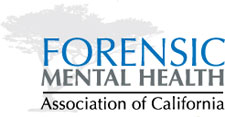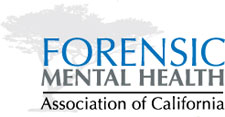DIFFERENTIATING PERSONALITY DISORDERS FROM MENTAL DISORDERS
Date & Time
March 13, 2023
9:00am - 1:30pm
Location
Virtual
March 13, 2023
9:00am - 1:30pm
Location
Virtual
Summary
Differentiating severe mental disorders from personality disorders can be among the more challenging tasks faced by psychologists. Diagnostic momentum from collateral sources, pathologizing instrumental behaviors in correctional settings, and symptom overlap among disorders can produce complications in explaining behaviors. For example, how might one assess whether someone is exhibiting signs of a psychotic disorder, or manipulating staff to achieve a specific outcome? How does careful documentation inform those decisions?
It is important for those in correctional and forensic settings to understand why the distinction is critical. This may have significant implications for the treatment individuals receive, the diagnoses they carry, and the opinions rendered thereafter – particularly when there are statutory exclusions for personality disorders.
Mental health professionals have many tools at our disposal to assist with differential diagnosis, including specific diagnostic criteria, access to collateral information, specialized interviewing skills, and psychological testing. Sharp critical thinking skills are also an essential part of examining any individual’s behavior. This workshop will address critical thinking in differential diagnosis. We will discuss skills that enable us to weigh the data we consider, assess where the data converge, question where they do not, and impartially weigh information in the interest of achieving and communicating a thoughtful differential.
It is important for those in correctional and forensic settings to understand why the distinction is critical. This may have significant implications for the treatment individuals receive, the diagnoses they carry, and the opinions rendered thereafter – particularly when there are statutory exclusions for personality disorders.
Mental health professionals have many tools at our disposal to assist with differential diagnosis, including specific diagnostic criteria, access to collateral information, specialized interviewing skills, and psychological testing. Sharp critical thinking skills are also an essential part of examining any individual’s behavior. This workshop will address critical thinking in differential diagnosis. We will discuss skills that enable us to weigh the data we consider, assess where the data converge, question where they do not, and impartially weigh information in the interest of achieving and communicating a thoughtful differential.
Presented By
Melinda DiCiro, PsyD, ABPP & Michelle Vorwerk, PsyD, ABPP
Learning Objectives
- List three symptoms that overlap among mental disorders and personality disorders
- Describe two features that distinguish mental disorders from personality disorders
- Analyze data to distinguish mental disorders from personality disorders and traits
- Describe and utilize at least three critical thinking skills that will aid in differential diagnosis
- Explain how to effectively document behaviors and symptoms to aid a thoughtful differential
CE Credit |
Intended Audience |
Experience Level |
|
4 CE Available for CPA, BBS
Additional Continuing Education Information |
This training is intended for mental health clinicians.
|
This training is appropriate for all level clinicians.
|

